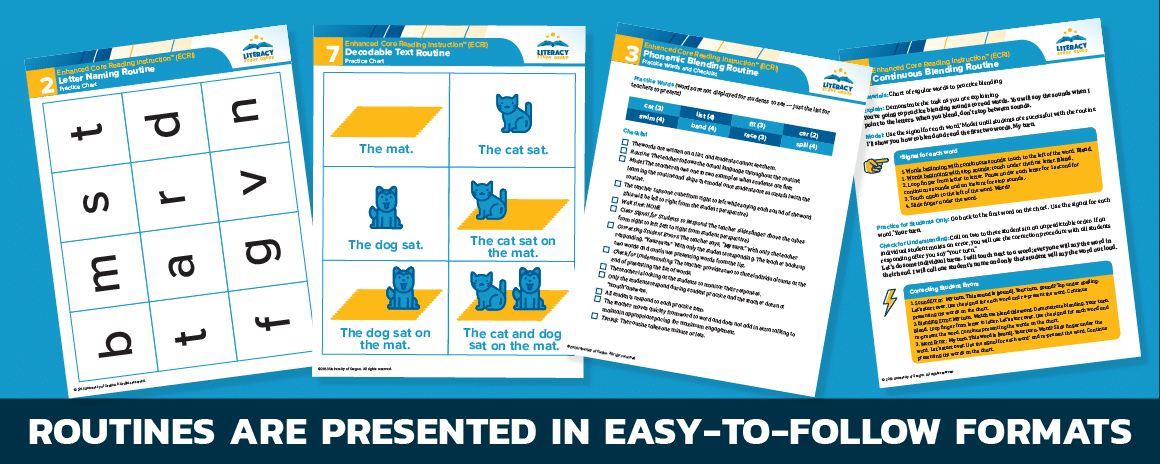
Literacy Study Group
Challenge:
Solution:
Create a web-based professional development intervention for elementary educators to enhance their abilities to teach reading to students with or at-risk for EBD. The intervention combines best practices in high-quality reading instruction with behavioral interventions to give teachers the tools to support students with EBD.
The Literacy Study Group (LSG) program utilizes Enhanced Core Reading Instruction (ECRI) developed by the Center for Teaching and Learning at the University of Oregon. The online program builds on the benefits of Teacher Study Groups allowing teachers to learn together, collaborate, and share feedback.
Process:
- Collaborate with Dr. Greg Benner and partners at University of Washington, University of Alabama, and University of Oregon to develop a feasibility study to evaluate LSG practicality, fidelity of use, and teacher satisfaction. Dependent variables include:
- Teacher self-efficacy (both general teaching self-efficacy and specific to behavior and reading instruction)
- Use and satisfaction
- Knowledge of literacy instruction and engagement strategies
- Develop ten interactive online modules on the Canvas Learning Management System.
- Produce instructional videos modeling wrong and right way approaches.
- Collect, format, and organize support resources and make them available for easy download.
Resources include:- Systematic and Explicit Reading Instruction for small groups
- Behavior strategies and research theory
- Utilize vodcasts (video webcasts) based on ECRI to allow participants to record themselves practicing a routine, then give and receive feedback with peers.
- Implement an online forum for participant discussion and reflection.

Preliminary results showed significant improvements in general teaching self-efficacy, self-efficacy in reading instruction, and self-efficacy in managing behavior. Participants reported that the program was easy to use.
This program was developed and supported in part with funding from the Institute of Education Sciences, U.S. Department of Education, Grant No. R324A090104 to the Center on Teaching and Learning, University of Oregon.
